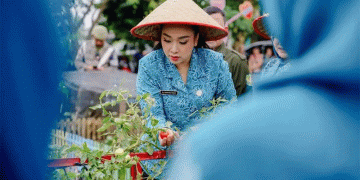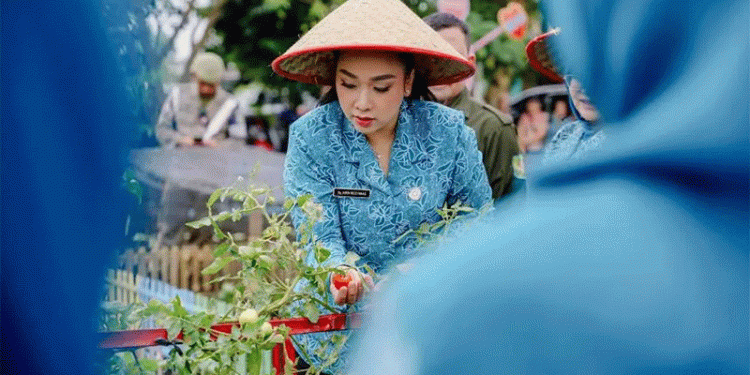In a recent visit to Kelurahan Sempakata, Medan, Ketua TP PKK Kota Medan, Airin Rico Tri Putra Bayu Waas, highlighted the success of Taman Setia Sempakata—a thriving urban farming project under the Hatinya PKK program. This initiative, selected as the best in Medan, will compete at the provincial level in the 53rd Hari Kesatuan Gerak (HKG) in 2025.
The garden, named Taman Setia (Sejuk, Tertata, Indah), features an impressive variety of crops, including Brazilian spinach, Japanese turmeric, sweet mustard greens, pak choi, red chili, eggplant, tomatoes, basil, and more. Additionally, the site integrates maggot farming, catfish breeding, and medicinal plants—demonstrating a sustainable, multi-functional approach to urban agriculture.
The Role of Community and Agricultural Extension Workers
The success of Taman Setia is attributed to strong collaboration between PKK cadres, local government, agricultural extension officers (PPL), and residents. According to Airin Waas, harvests are distributed to the community, improving local food access.
This aligns with global urban farming trends. A 2023 FAO report notes that urban agriculture can supply up to 20% of a city’s food demand, while reducing transportation emissions. Similarly, a study by Resource-Constrained Urban Agriculture (2024) found that integrated farming systems (like maggot and fish cultivation) can increase yields by 30% compared to traditional methods.
Why This Model Matters for Indonesian Agriculture
Indonesia faces challenges like land scarcity and food inflation (BPS 2024 reports a 9.2% year-on-year increase in vegetable prices). Urban farming offers a solution by:
- Enhancing food security (local production reduces import dependency).
- Providing additional income (surplus harvests can be sold).
- Promoting sustainability (composting and maggot farming reduce waste).
The Taman Setia Sempakata project proves that community-driven urban farming can transform underutilized spaces into productive food hubs. With proper training, government support, and farmer engagement, such initiatives could be replicated across Indonesia—boosting food resilience and green urban development.































